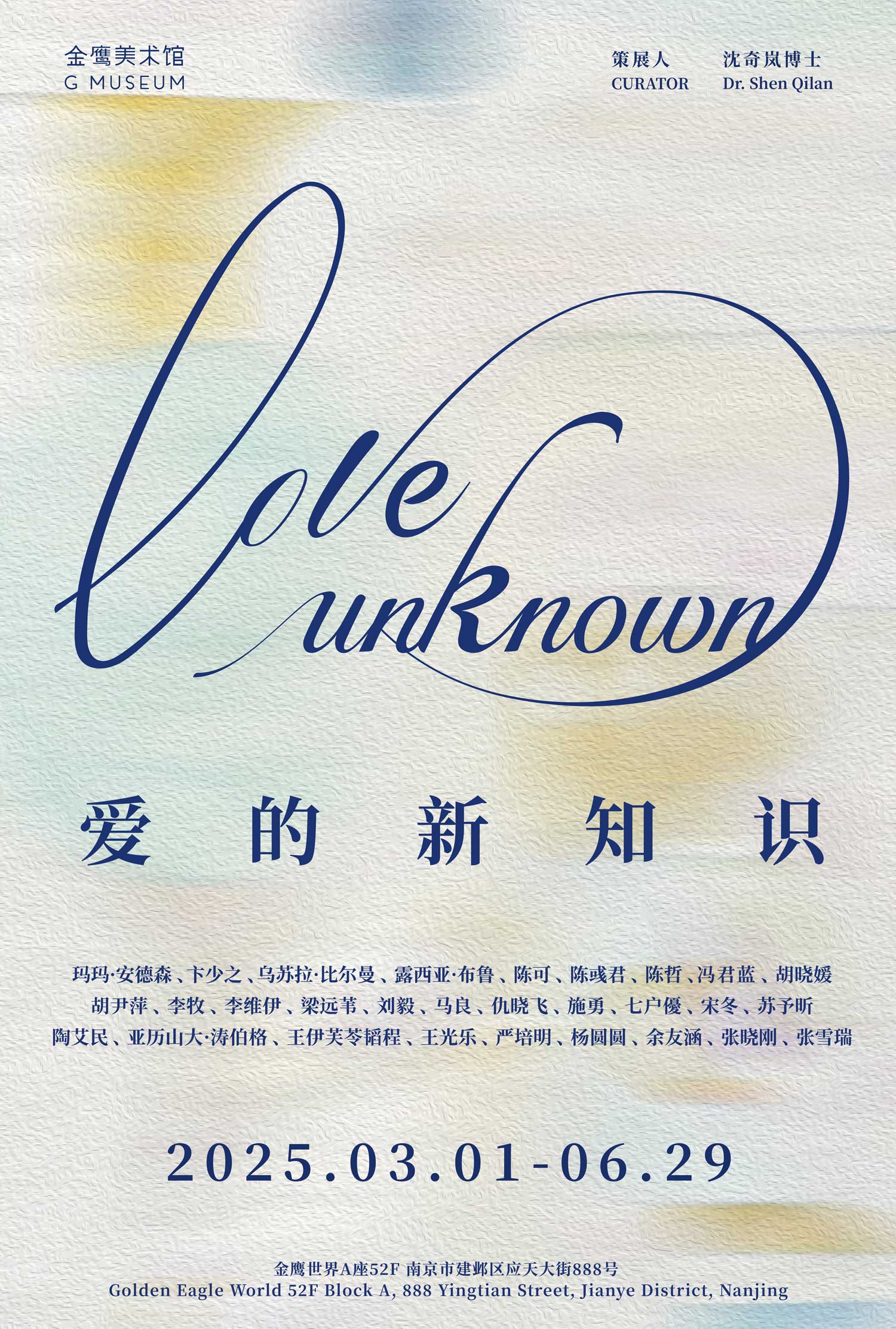If love is a form of knowledge, can it be found in textbooks? Can it be learned? Is there a passing grade or perfect score?
If love is a skill, would anyone acquire it? Would the skill of love wean off without practice, like swimming?
The wise do not lose themselves in love, whilst the brave dive headlong. During the era of big data when everything appears quantifiable, love is the courage to step into the unknown—and to unlock the potential of both oneself and the world.
Let us conjoin feeling to harvesting to explore the new knowledge of love.
Love Unknown invites us to reimagine and reinterpret the idea of “love.” The featured artists and their works radiate raw, unfiltered emotional intensity. The exhibition space is reconfigured as two contrasting apartment blocks, with a plaza for trolling and reflection. Within the exhibition, there are three different walkways offered to guild audiences into exploring the infinite possibilities of love. Love unfolds in the familiar settings of a three-bedroom condo, and on the streets of everyday life as well.
Love Unknown proposes to ground the subject of love in its tangible reality. Within life’s intricate textures, love weaves an elusive, irreducible complex tapestry. You may walk through the rooms (alas galleries) to hear the stories of love. Some heaved the sighs of fate (Yan Pei-Ming’sTête (Head) and Zhang Xiaogang’sParadise), and some whisper to the lost loved ones (Song Dong’sFather & Son Look into the Mirror, Maleonn’sSit, Let Me Tell You a Story), among many others.
Love resists monad structure. Instead, it is a polyphony, ineffable but tangible—a dance about the song of life (Liu Yi’sMorning and Dusk, and No More, Luka Yuanyuan Yang’sCoby and Stephen Are in Love). It quests into the staleness of life through poetry (Lucia Bru’s (cubes)), probes into the ultimate exploration of human-cosmos relationship (Ursula Biemann’sAcoustic Ocean, Chen Zhe’sEternal Ephemera: Descending), and grapples with the paradoxes of idealism (Chen Ke’sWhirling).
Generations speak in their different tongues, yet intimate relationships bind the
exhibition together: love is a deliberate choice and action, not just an idea. The knowledge of love arises from individuals' felt perceptions of one another. Through carefully curated encounters, audiences return to life's nuances, confronting the delicate complexities of love.
In her bookLove’s Knowledge, the contemporary philosopher Martha C. Nussbaum rescues philosophy from abstraction through literature. She argues that art offers “deeper, sharper, more precise” experiences than life itself, provoking transcendent reflection. Great ideas, she writes, “do not claim to explain everything, but immerse themselves in life’s irreducible mysteries.”
The knowledge of love is about embracing and enduring the vulnerability of life within real lived moments. Distilled from the artists' experiences, the artworks serve as conduits to raw, unfiltered life, awakening audiences to their own potential, to the lives of others, and to a richly plural world.
Theories tout universal laws; the wise shield their hearts with reason. But love thrusts us back into the harsh, unvarnished truth of existence with its joy and ordeal, confusion and choice. To love is to cherish and empathize, to recognize life’s fragility and hold it close. Only by sharing the weight of doubt, suffering, and agency with others can we create love’s new knowledge. It is within the depths of experience that transcendent ideas take form. Human possibility unfolds—not by conquering the unknown, but by embracing it. And in doing so, we may fulfill our deepest potential.
-Shen Qilan

